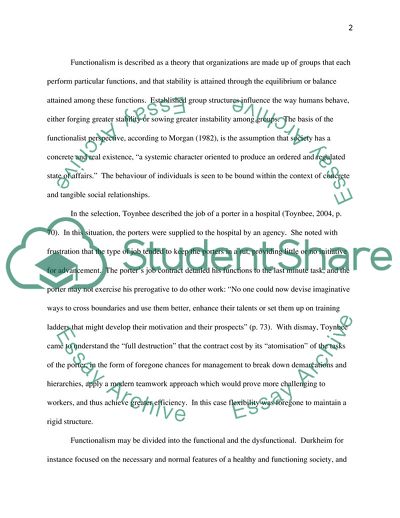Cite this document
(Organization and Management Theory - Functionalist Perspectives Advanc Case Study, n.d.)
Organization and Management Theory - Functionalist Perspectives Advanc Case Study. Retrieved from https://studentshare.org/sociology/1730161-organisation-and-management-a-case-study
Organization and Management Theory - Functionalist Perspectives Advanc Case Study. Retrieved from https://studentshare.org/sociology/1730161-organisation-and-management-a-case-study
(Organization and Management Theory - Functionalist Perspectives Advanc Case Study)
Organization and Management Theory - Functionalist Perspectives Advanc Case Study. https://studentshare.org/sociology/1730161-organisation-and-management-a-case-study.
Organization and Management Theory - Functionalist Perspectives Advanc Case Study. https://studentshare.org/sociology/1730161-organisation-and-management-a-case-study.
“Organization and Management Theory - Functionalist Perspectives Advanc Case Study”. https://studentshare.org/sociology/1730161-organisation-and-management-a-case-study.


